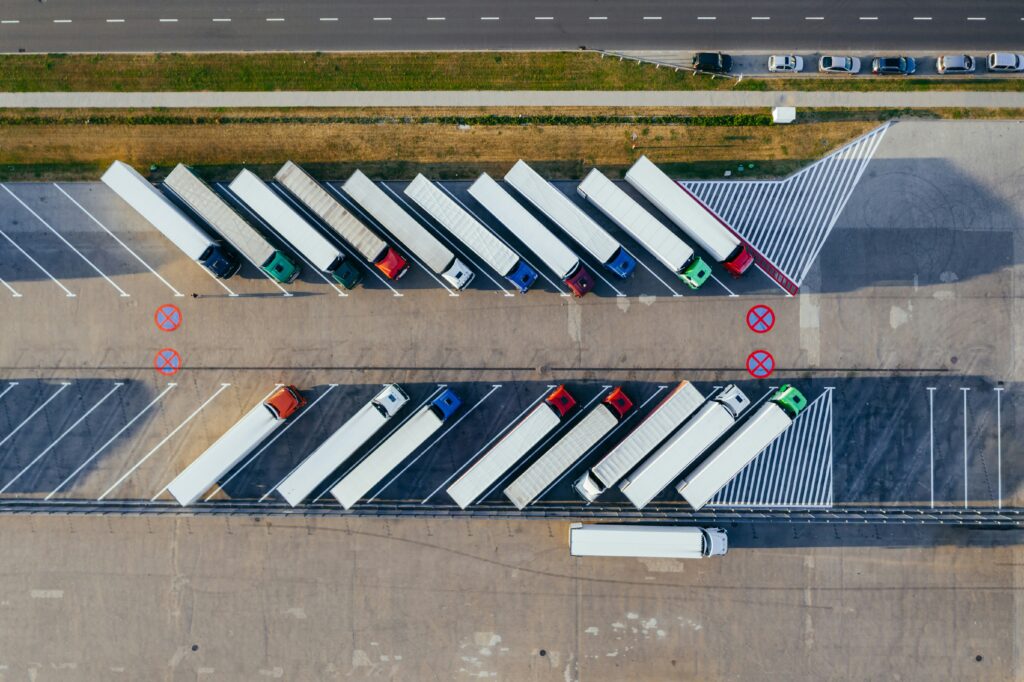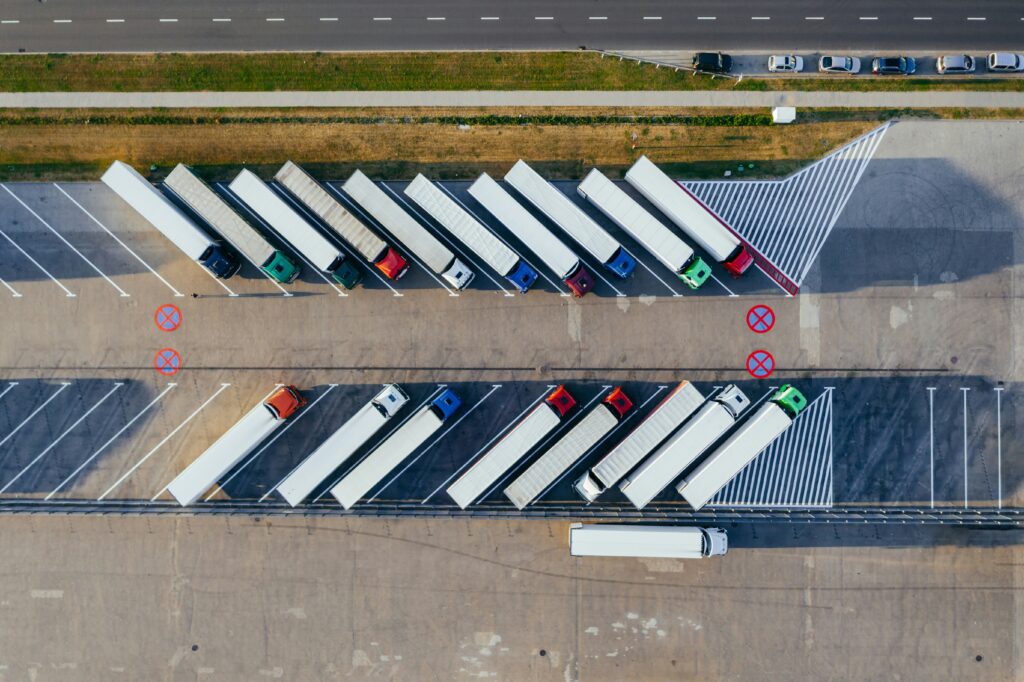Understanding the Different Types of Dry Van Services
When selecting a dry van trucking company, it’s crucial to understand the diverse array of services they offer to ensure your unique shipment needs are met with precision. Dry van transportation services aren’t just about transporting goods in a sealed trailer — it’s about tailoring those services to fit your specific logistical requirements. Dry van transportation services company, it’s crucial to understand the diverse array of services they offer to ensure your unique shipment needs are met with precision. Dry van transportation services aren’t just about transporting goods in a sealed trailer — it’s about tailoring those services to fit your specific logistical requirements.
First, consider whether you need regional or long-haul services. Regional services usually cover a smaller area and are ideal for companies that have to make constant shipments within a certain zone. Long-haul pertains to crossing the country, ensuring your goods reach the farther markets efficiently.
Then look for specialized services: expedited shipping for time-sensitive shipment, for instance. Many companies offer to guarantee windows of delivery that minimize delay and increase dependability, something quite critical when it deals with perishable goods or even JIT supply chains.
Also, check out load capabilities. Is the company capable of managing full-truck-load and less-than-truckload shipments? A flexible company that is able to deal with shipments of different sizes could very much lower costs and boost flexibility.
Finally, innovative tracking technologies by leading companies provide real-time updates on shipment status. This transparency enhances not only client trust but also proactive decision-making, making logistical challenges streamlined operations.
Company Reputation and Client Satisfaction Evaluation
- Research Customer Reviews: The actual customers’ feedback can be seen on every online review platform, including Trustpilot or Transport Reviews. Patterns are to be gleaned for good and bad since they usually provide both strong and weak points of the company. A company averaging 4.5 stars with many reviews might point out robust reliability.
- Request Client References: Reach out to potential companies and ask for client references. The ability to speak directly with active clients is very important and can yield valuable information regarding the quality of service and relations with clients. Questions to consider: How responsive is the company to issues? Do they meet delivery timelines consistently?
- Verify Industry Certification: Check if the company is certified to standards such as ISO 9001 for its quality management systems or SmartWay Transport Partnership to showcase environmental responsibility; many times, this will mean an entity has attained high marks for efficiency in their core operations.
Look at the website of the company and social media pages. A handsome web presence, frequently updated, may reflect a company that is transparent and communicative with its clientele.
Assess the Fleet Size and Condition of Vehicles

- Variety of composition, whether the fleet contains vehicles of different sizes and capabilities, for example, 48-foot and 53-foot dry vans. This would make it possible to handle different volumes of cargo and, at the same time, efficiently load the cargoes.
- Age of Vehicle and Maintenance: Request the average age of vehicles in the fleet. Firms with newer fleets usually have better fuel efficiency, with fewer chances of mechanical failure. Also, ask for the maintenance records to ensure that regular servicing has been carried out and safety standards met.
- Availability and Redundancy: In general, larger fleets translate to increased availability with the ability to provide backup vehicles; this is relevant in assuring continuity of service, especially in periods of shipment volume spikes and sudden breakdowns.
- Technology Integration: Determine whether the fleet uses industry state-of-the-art technology, including GPS tracking and ELDs for accurate route planning and regulatory compliance.
Cost Structure and Pricing Model Analysis
A proper understanding of cost structures and pricing models of dry van trucking companies helps in adapting your logistics budget effectively. It’s not just about the bottom line-it’s about recognizing the value within the costs. Begin by dissembling the pricing model: is it a flat rate, or does it vary based on distance, weight, or even load type? For example, flat rates make budgeting easy, without much wiggle room, whereas variable pricing allows changes to shipment nuances.
Investigate hidden fees such as fuel surcharges, accessorial charges, or detention fees. A company with transparent pricing will offer a breakdown of these costs upfront. Additionally, consider discounts for high-volume shipments or long-term contracts. Some firms may offer up to 15% reductions for regular clients, substantially impacting your annual logistics expenses. By meticulously analyzing these factors, you ensure alignment between your budget and service expectations.
Insurance and Safety Standards:
The most important things in choosing a dry van trucking company are insurance and safety standards. Strong insurance coverage not only protects your cargo from any unforeseen incident but also tells a lot about the accountability of the company. Check the cargo insurance limit of the company; most good companies have cargo insurance up to $100,000 per load, although specific needs may require higher limits. Further, the analysis of safety standards reveals the integrity of the company’s operations. Check if the company adheres to the FMCSA Safety Measurement System, which calculates driver safety, vehicle maintenance, and compliance history. For instance, a company with a 90% safety rating reflects strict adherence to best practices. Give preference to those with exemplary CSA scores; companies with scores below the national average indicate strong safety management. These elements not only reduce risks but also strengthen confidence in the fact that your shipments are well taken care of and delivered reliably.
Understanding Technology Integration and Tracking Capability
- Real-Time GPS Tracking: Companies that can offer real-time GPS tracking will be able to provide minute-by-minute location updates. This becomes an important feature for route adjustments on the fly to optimize delivery timelines based on traffic flow conditions.
- Telematics Systems: Telematics technology integrated into such a solution tracks vehicle diagnostics and driver behavior. The data-driven approach contributes to saving as much as 15% in fuel consumption and maintaining regulatory compliance because hours of service are monitored.
- Shipper Mobile Apps: Companies offering a dedicated mobile app facilitate seamless interfacing for shipment tracking, documentation management, and even alerts. Direct access increases communication and can offer immediate adjustments.
- Blockchain for Security: Adopt companies that use blockchain to secure shipment data integrity. With blockchain technology, due to the existence of an immutable ledger, there is little possibility of any breaches in data; hence, transactions are guaranteed secured.
Delivery Times and Reliability

When choosing a dry van trucking company, understanding delivery times and reliability is critical. Start by analyzing the company’s historical on-time delivery rates. Ideally, top-tier companies boast rates above 95%, showcasing their commitment to timeliness.
A company offering 98% on-time would therefore boast a good network in place for logistics, together with systems. For example, performance data requested covering the last 12 months should concentrate on peak seasons and difficult routes, and any consistency in those periods is an indicator of reliability.
Consider the company’s hours of operation and how those would affect their ability to accommodate urgent shipments. Many companies provide 24/7 customer service and logistics to solve unexpected problems on time. Ask about contingency plans they may have in place in case weather conditions or road closures cause delays. Being proactive in such cases may include rerouting and using partnerships for alternative transportation modes to avoid costly delays.
Finally, seek case studies or ask for testimonials regarding their stability during stressful situations. These will shed light on their commitment to delivering on the promise of meeting client expectations, thus securing your business with a reliable service provider.
Customer Support and Communication Channels
Effective customer support and a variety of communication channels are vital when choosing a dry van trucking company. Top-tier companies prioritize 24/7 support, ensuring rapid resolution of unexpected issues. For example, a company providing around-the-clock access to dedicated account managers can dramatically improve response times during emergencies, reducing potential losses.
Establish communication channel scope. Companies that operate integrated communication via web portals and mobile applications enable real-time order updates to customers and direct assistance teams. Also, in recent studies, logistics managers reported, with a view of achieving shipment tracking with instant support along many channels, the satisfaction rate came to 72%. Give priorities only to those applying technologies that enable smooth and effectual communication without breach.
Conclusion: Making an Informed Decision
It is a critical decision to select the appropriate dry van trucking company since this directly impinges on the efficiency of your supply chain and overall business success. Consider key variables, including geographic service areas, specialized options like expedited shipping, and handling for varied load sizes, when aligning with a provider who will meet your logistical needs. Research company reputation by reading customer reviews and asking for client references to assure a trustworthy partnership. Observe the fleet capability: from diversity to technology integration, all add operational strength. Understand their pricing model for value optimization of your logistics budget with no hidden surprises. Ensure that insurance coverage is strong and safety standards are followed for shipment protection. Go ahead with those companies that are technology-driven, offering real-time tracking and telematics for higher efficiency and visibility. Lastly, consider dependable delivery performance and high customer support to help your supply chain process flow smoothly. You will then be able to make a fully thought-out decision which will strengthen your logistics operations and assist your business objectives.
